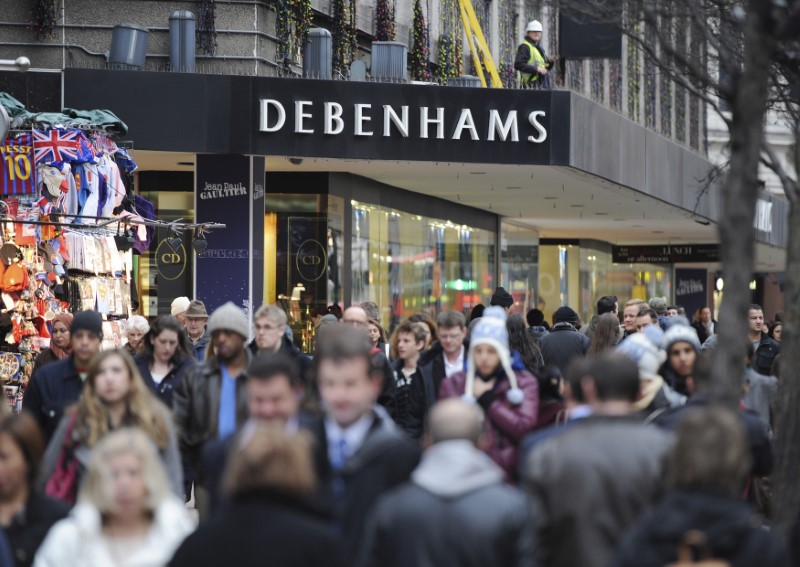By Sarah Young
LONDON (Reuters) - Debenhams (L:DEB), Britain's No.2 department store chain, grew sales over its Christmas trading period, as customers bought more make-up, fragrances and lingerie, showing a strategy to shift away from fashion sales was working.
British shoppers have defied predictions that Christmas spending would be down, and continued to treat themselves. Debenhams' peers Marks & Spencer (L:MKS) and John Lewis (JLP.UL) also reported growth, in contrast to clothing retailer Next (L:NXT) which has suffered as Britons cut back on clothes spending.
Debenhams, which is second to No.1 department store chain John Lewis, reported underlying sales growth of 3.5 percent in the 18 weeks to Jan.7, beating a consensus forecast for growth of 1.2 percent.
Over the seven-week period which included Christmas, underlying reported sales were up 5 percent.
"I'm delighted that the business has delivered a good trading performance over peak," Chief Executive Sergio Bucher told reporters on Thursday.
Bucher, a former Amazon (O:AMZN) executive who took the helm at Debenhams in October, confirmed he would outline his plans for the company in April, but said he was encouraged by the company's focus on growing beauty and gifts rather than clothes.
Shares in Debenhams were up 4.9 percent at 56.9 pence at 1009 GMT. Over the last 12 months, Debenhams shares have slumped 26 percent, underperforming both the FTSE midcap index (FTMC) of which it is part, which is up 10 percent, and bigger rival Marks and Spencer which has lost 17 percent in the same period.
Analysts at Investec suggested the stock had further to run as Christmas trading should reassure that Debenhams was on track to meet full-year forecasts.
"We also expect more positive sentiment towards the shares in anticipation of the new CEO's strategy reveal in April," Investec analyst Kate Calvert said.
Debenhams said online sales grew 13.9 percent in the 18-week period, meaning that sales via the web now account for about 17 percent of the overall mix.
John Lewis said on Thursday it would invest heavily in its online business this year after 40 percent of total sales came from the internet over Christmas, raising questions about whether Debenhams may need to follow suit.
"We believe a major increase in capex could put the dividend, a key part of the investment case, at risk," said Liberum analysts.
